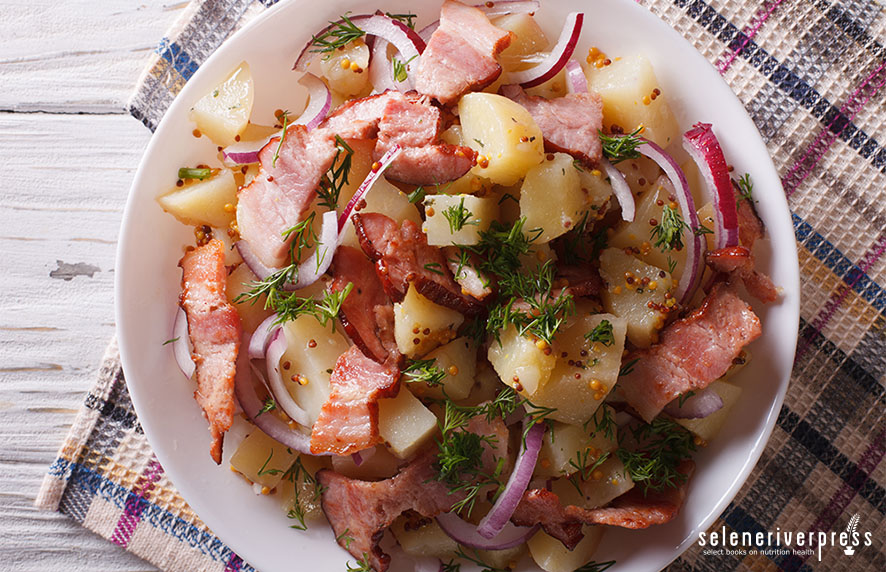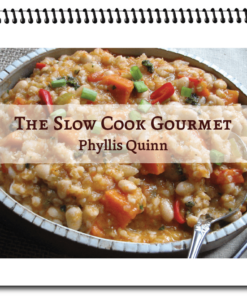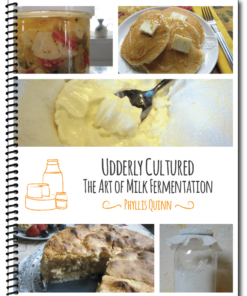Ask Chef Phyllis:
Summer is nearly here, and I love cold, creamy, mayonnaise-based potato and macaroni salads when we go to the beach or on a picnic. But everyone says that it’s unsafe to keep them in a cooler for too long. Is this true? Do you have ideas that will make me feel better about serving them? Do they really go bad? Do you have other suggestions for what to take?
—Marilyn Longwood, Seattle
Ah, summertime is here, and the trees are sweetly blooming. And, let me see…magnitudes of overheated people are making their way to overcrowded beaches and picnic areas, loaded down with cooked and uncooked food, drinks, and snacks, all packed into coolers with insufficient ice for a hot day under the sun.
But, Marilyn, the aftermath of these lazy summer days can be a night at the emergency room or an urgent care clinic inundated with sunburn victims who may have food poisoning. Mayonnaise, which can be bought at the store or made at home, contains eggs. Anything with protein in it must and should be refrigerated correctly, or it will go bad.
Before we even started using the term “pasta salad,” my mother made a delightful elbow macaroni salad with tuna, shrimp, and/or hard-boiled eggs. As I remember, it was delicious. But this kind of prepared salad, which contains proteins, must be correctly refrigerated until cooking or serving time, just as you would keep raw hamburgers cold until you’re ready to cook them. (All raw meats should be cooked to their proper temperature as well.)
I don’t want to scare you, but there is a real risk for stomach discomfort or worse when dealing with foods that haven’t been handled or stored correctly for too many hours. The same is true at Thanksgiving with underdone stuffing that isn’t cooked up to a safe temperature from inside the turkey cavity. (But, as you all know I’m fond of saying, that’s for another post. I will address stuffing cooked inside the bird before another Thanksgiving is upon us.)
But back to summertime salads. You can choose from dozens of safer options that are not only just as tasty but also keep longer than mayonnaise-based options. I recommend making your own salad dressing a day or two prior to your event, and test it in advance to see if you like it. Here are some ideas:
Olive oil and vinegar: Use three parts olive oil to one part wine vinegar along with a squeeze of mustard to help thicken it up. This can be prepared and stored in a small mason jar, and it’s an easy recipe for a starter. If you like a sweeter dressing, add a teaspoon of honey.
German potato salad: With bacon drippings, oil, and vinegar, German potato salad travels well and is one of my favorites. It’s also a welcome change from many of its mayonnaise-based counterparts. (See my recipe below.) Any pasta or macaroni salad with homemade Italian dressing rather than mayo-based dressing may also work for you. You can also find store-bought jars of marinated vegetables to add to your spread.
Store-bought or homemade veggie tray: A vibrant, colorful veggie tray is a fun and healthy way to introduce young children to vegetables—especially in the summer, when an abundance of fresh, flavorful options will be sure to whet young and growing appetites.
Tapenade: Chopped olives in oil, tapenade is available in the specialty aisle of most supermarkets. It makes for an interesting salad dressing and is safe for long durations.
Green or red pesto: Green pesto (basil inspired) and red pesto (red pepper and tomato inspired) both make safe, excellent salad dressings. And did you know that red pepper pesto pasta salad is the hottest new trend sweeping California this year?
Keep in mind that you can add more oil (perhaps even a flavored oil) to moisten your pasta if necessary. Also feel free to experiment with taking just-washed baby greens and adding your own bottled dressing at your destination—surely you know everything tastes better at the beach.
Summertime is a good time for experimenting with the abundant produce of the season. Nothing tastes as good as red, ripe Bing cherries (or mixed-color Napoleon cherries in early July), or melons grown on the western slopes of Colorado, where the sun bathes them to perfection. Delectable Palisade peaches (mentioned by Kramer in a Seinfeld episode back in the 90s) are simply too good for words. A ripe, juicy peach…does it get any better?
It’s always advisable to buy produce from the farmers’ market. You know it’s fresh, and you’ll experience the best produce available.
German Potato Salad
Chef’s note: For picnics and trips to the beach, it’s better to be safe rather than sorry. If possible, place raw foods in one cooler and cooked foods in another to prevent any contamination. Keep the coolers under the umbrella, and cook the raw foods as soon as you can.
Ingredients
3–4 lbs. Yukon gold or russet red potatoes, boiled (if thin-skinned, don’t bother peeling them)
⅓ lb. thick-cut, nitrate/nitrate free bacon (with drippings reserved)
½ red onion, finely diced
¼ cup white or red wine vinegar (I used sherry vinegar)
1 tablespoon honey
1 tablespoon dill pickle juice from the jar (optional)
Sea salt and freshly ground black pepper, to taste
Instructions
- Cook the potatoes until fork-tender but not mushy, then slice or dice them. Keep warm and set aside.
- Cook the bacon on a wire rack in the oven and reserve the drippings. Chop the bacon and set aside.
- In a large bowl, add red onion, 2 tablespoons of the bacon drippings, vinegar, honey, pickle juice (if using), and the salt and pepper.
- Add bacon to the dressing mixture. Add the potatoes (they should still be warm). Toss gently but thoroughly. Serve at room temperature or chilled.
Keep the summertime safe and fun!
Image from iStock/ALLEKO.





